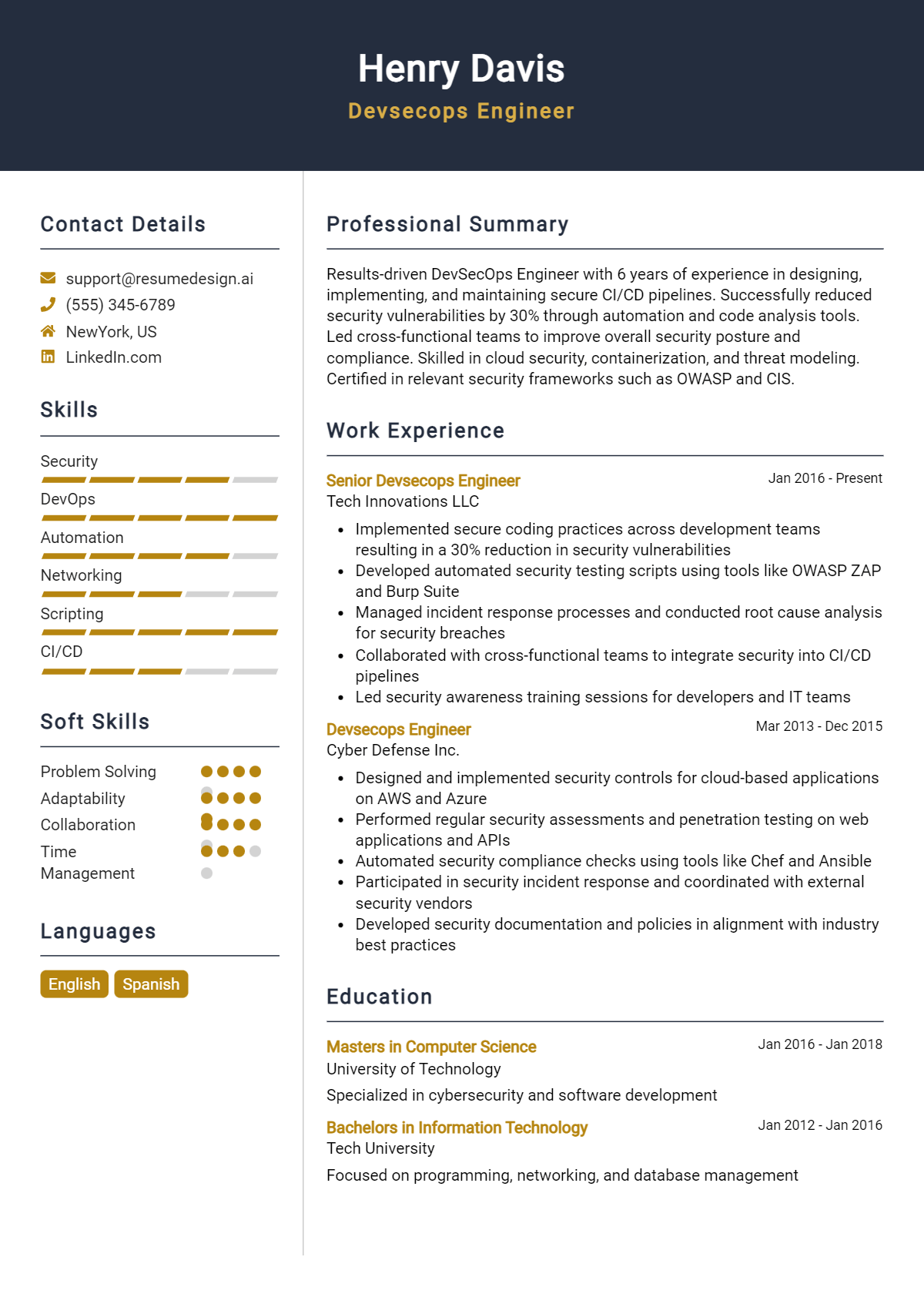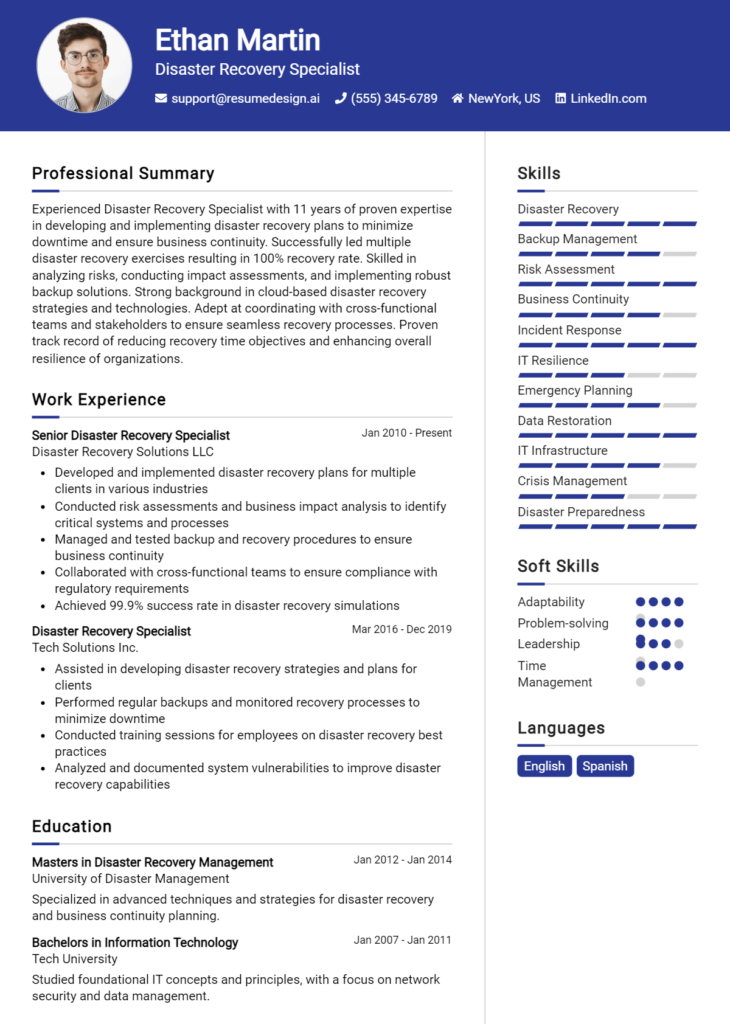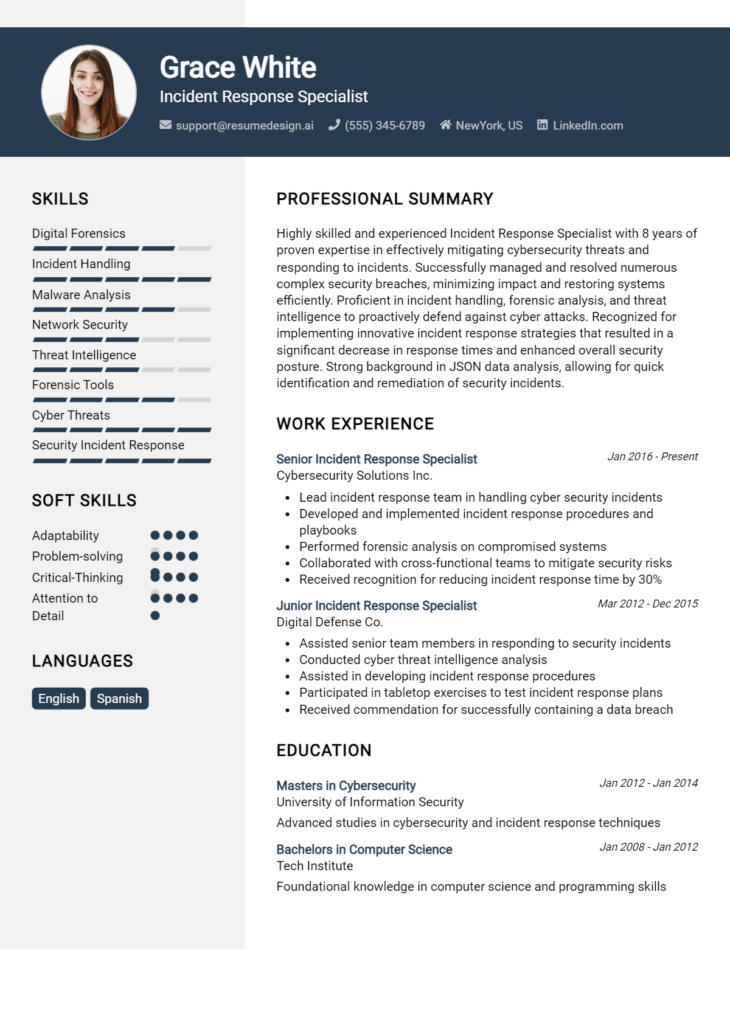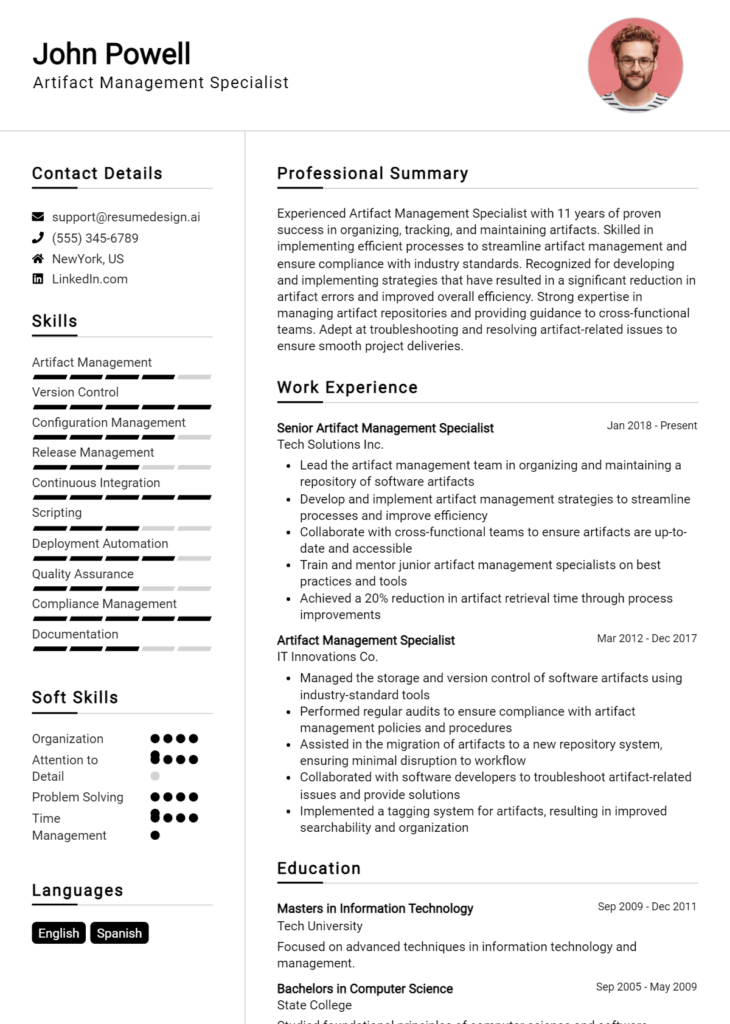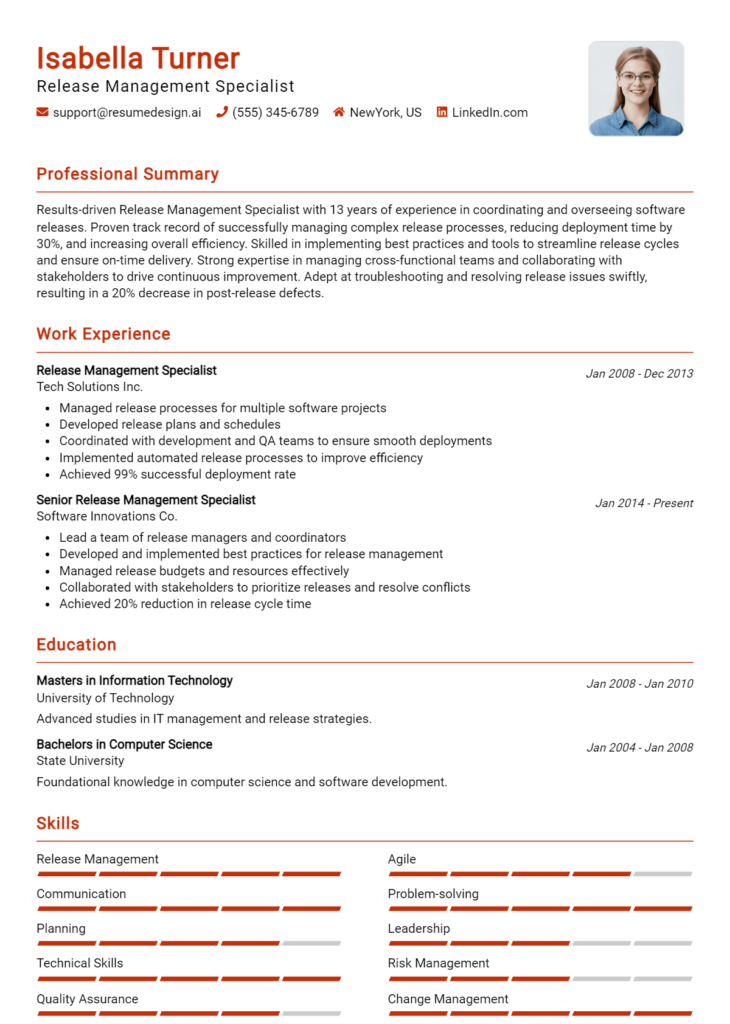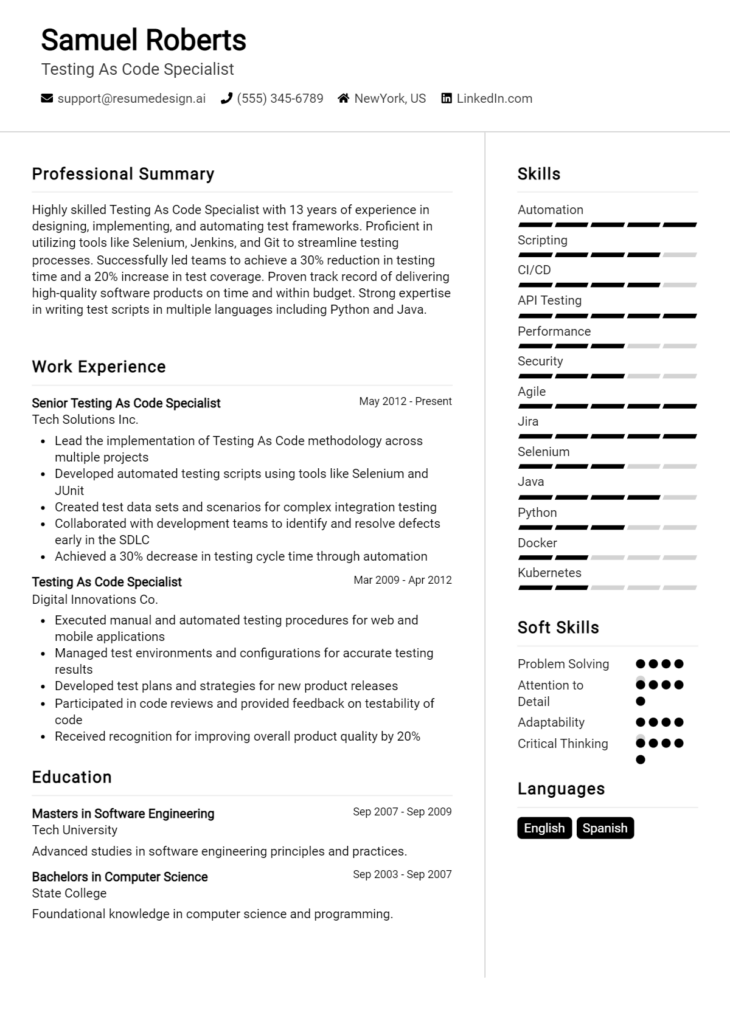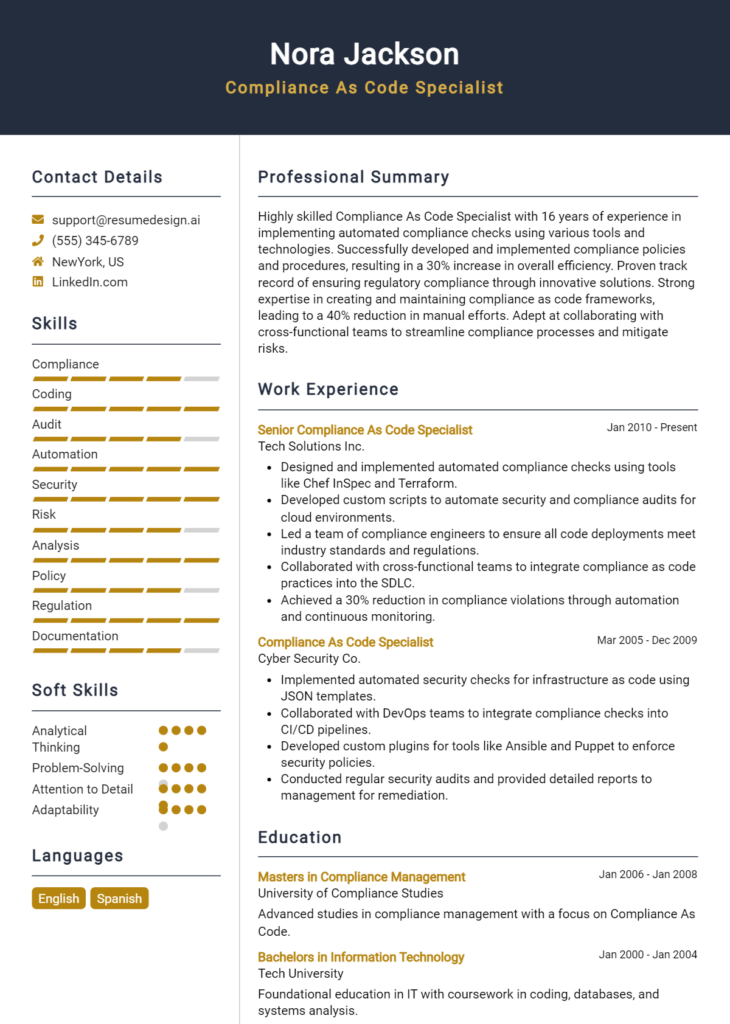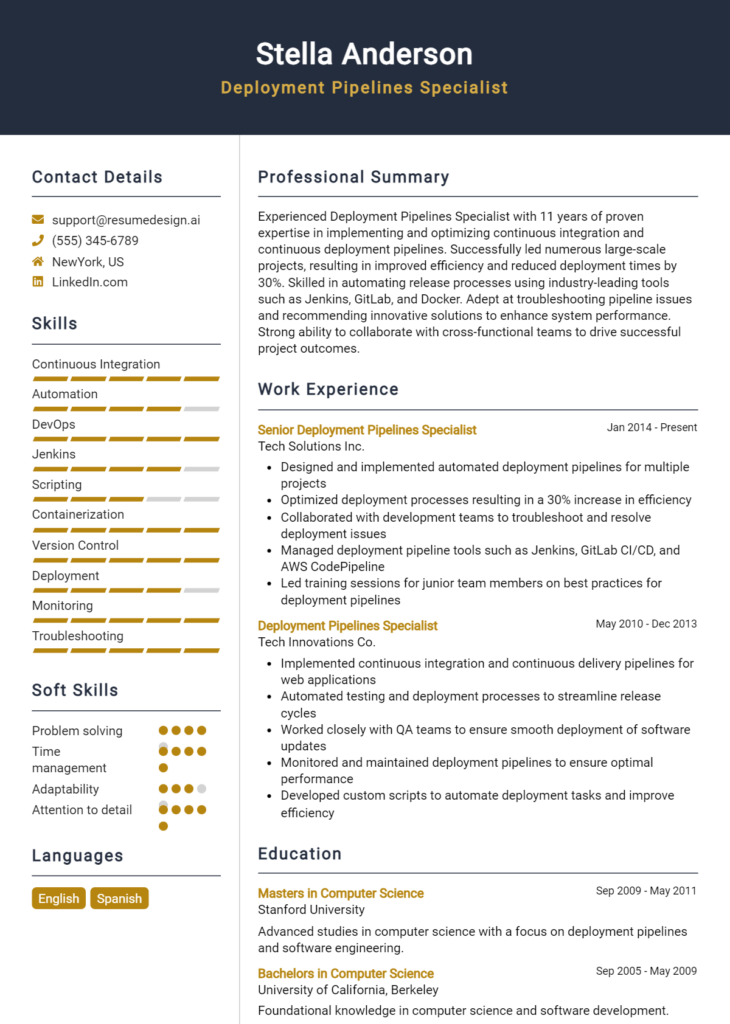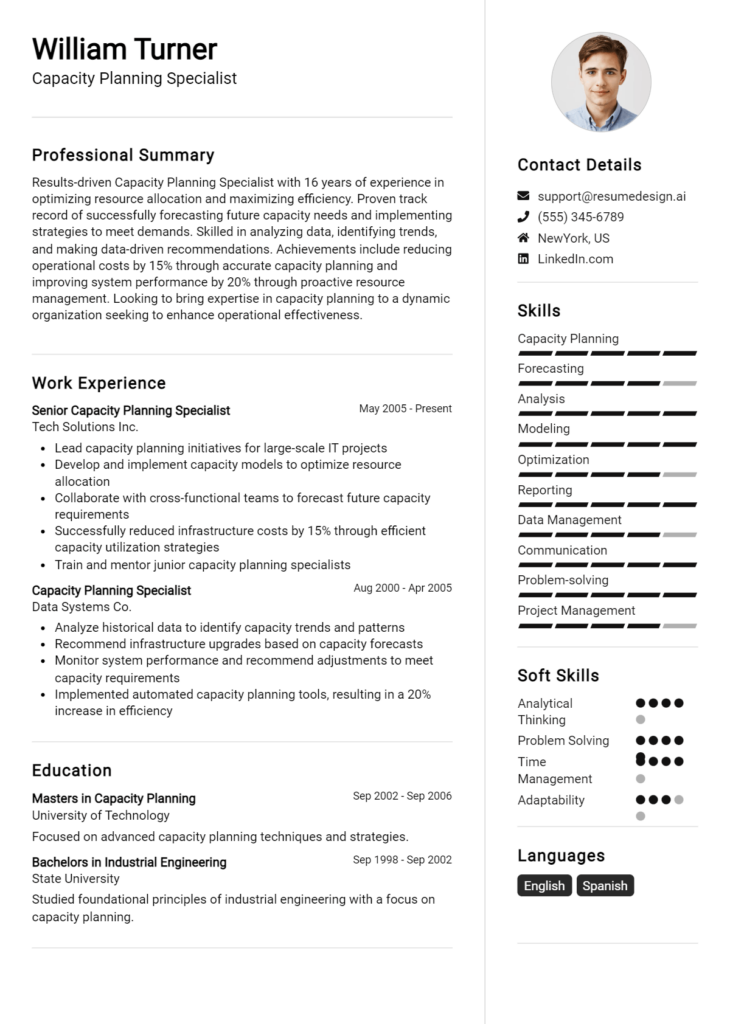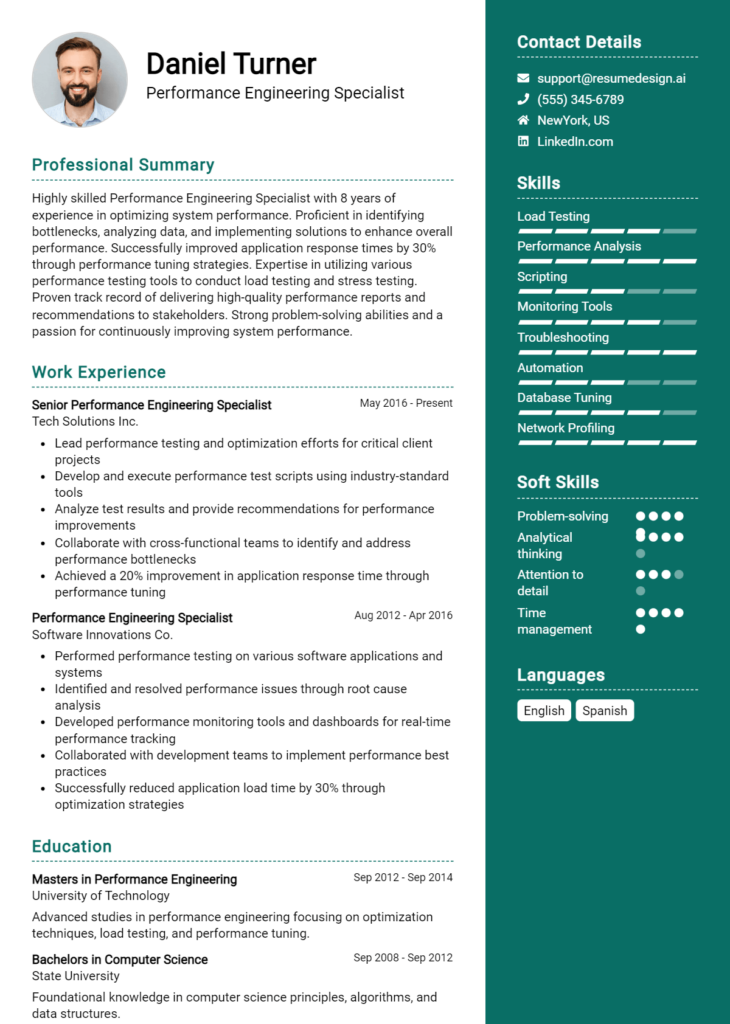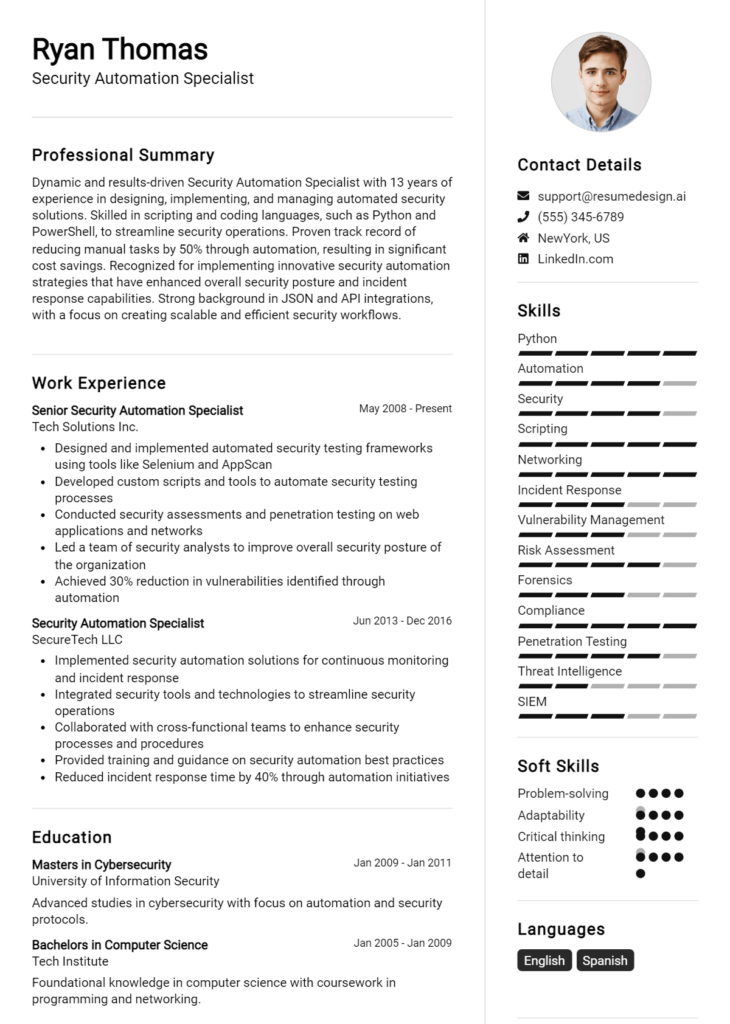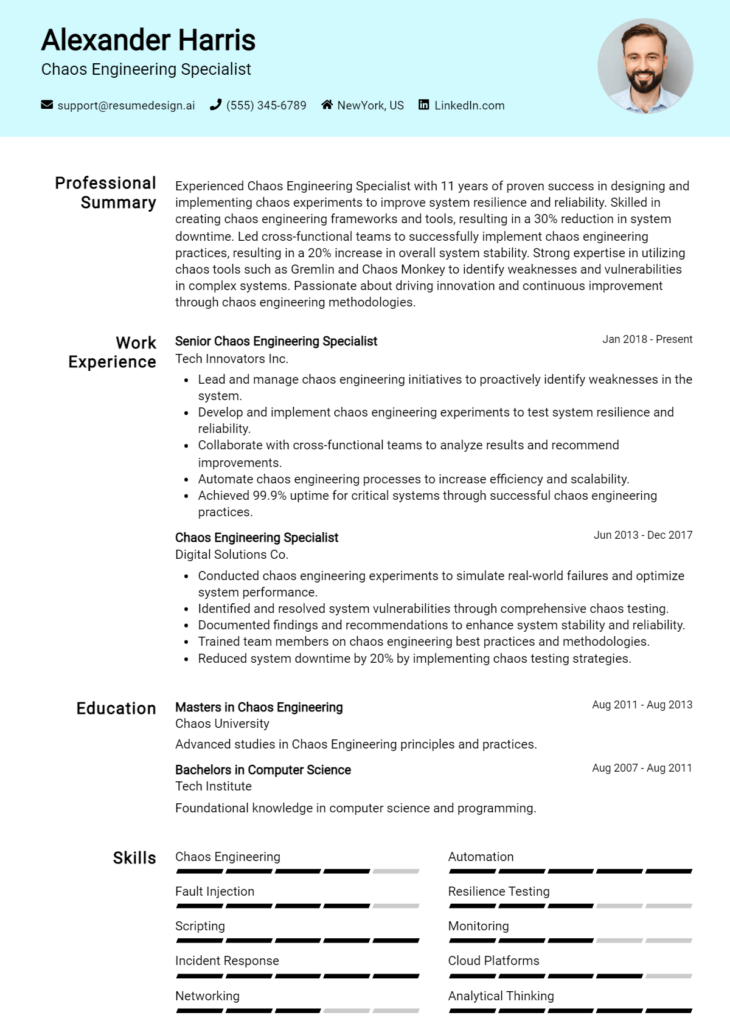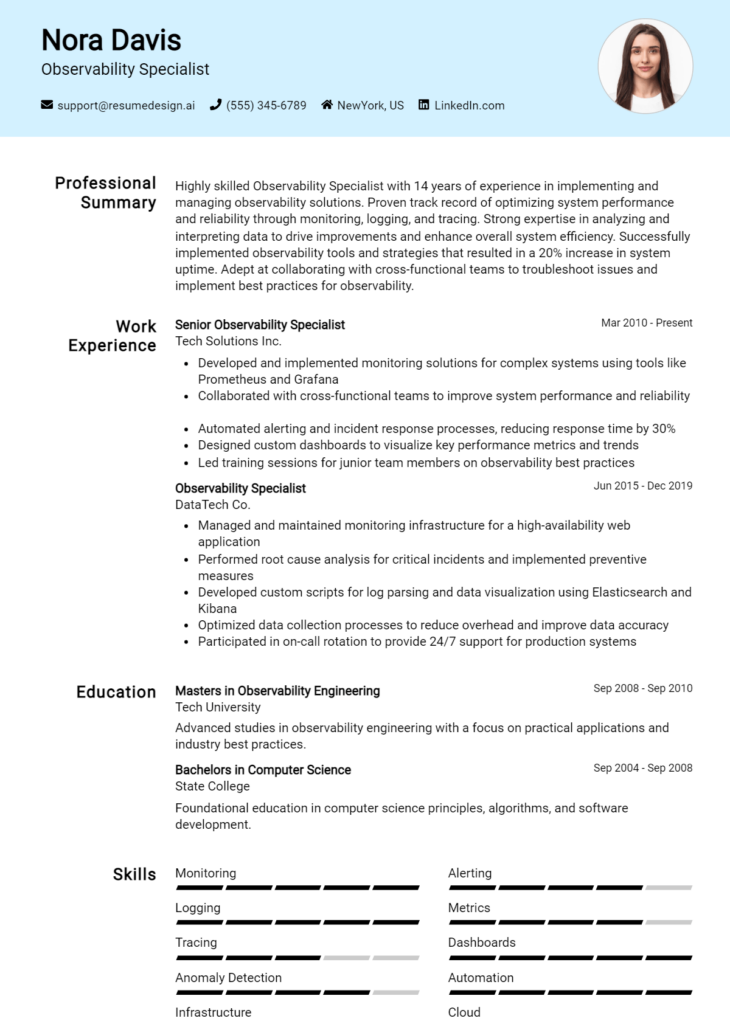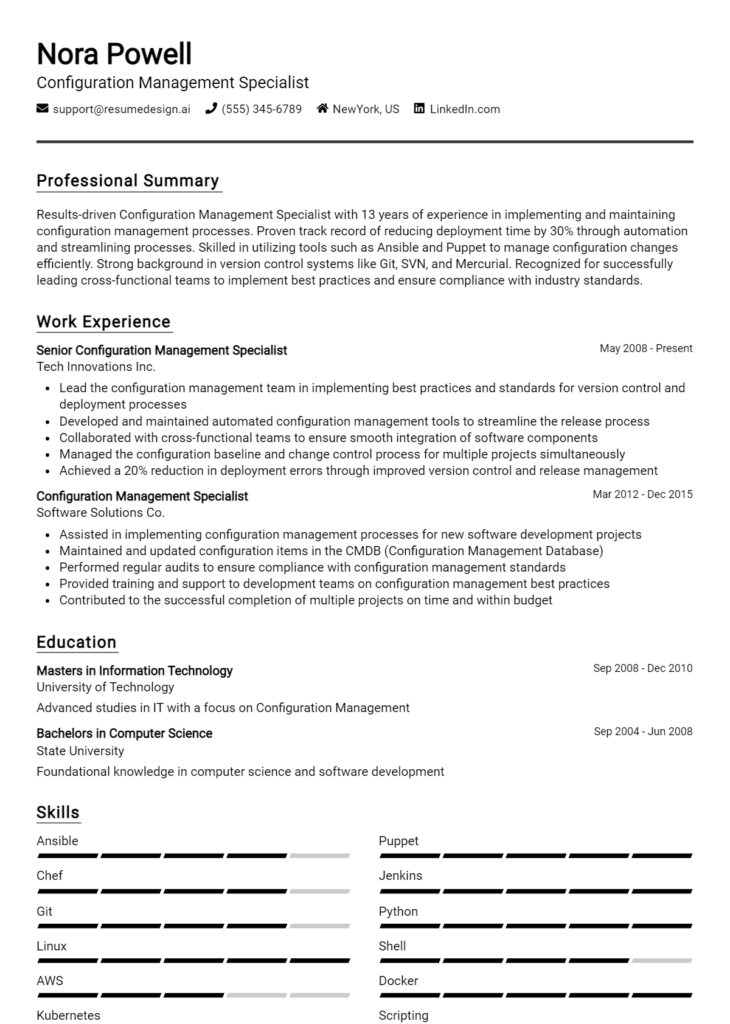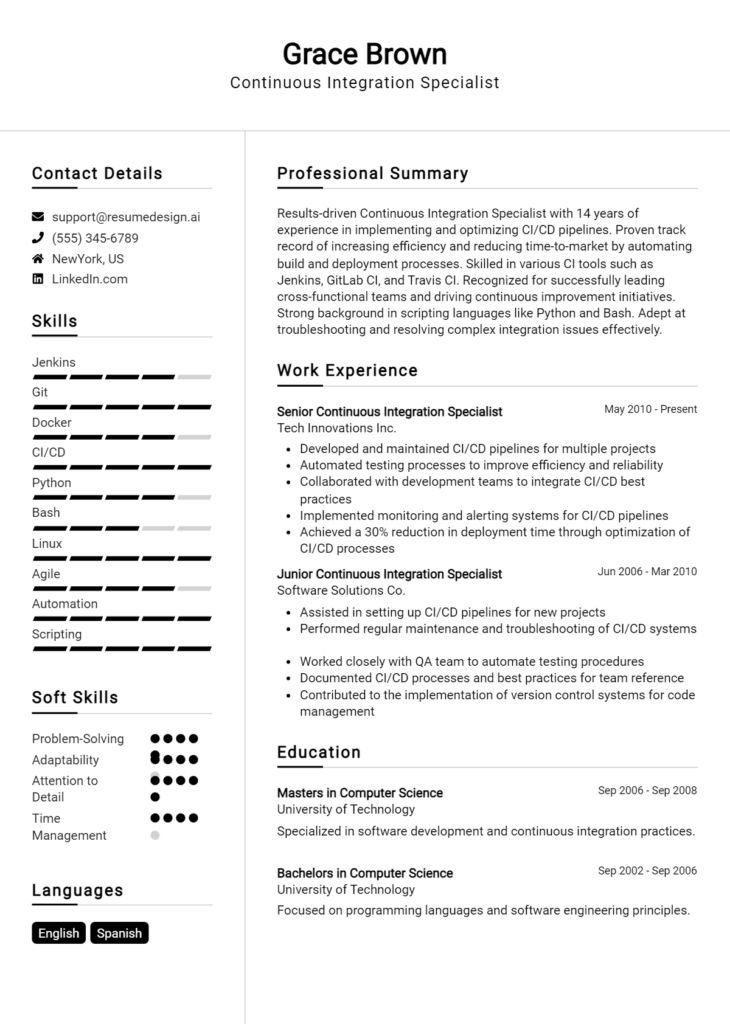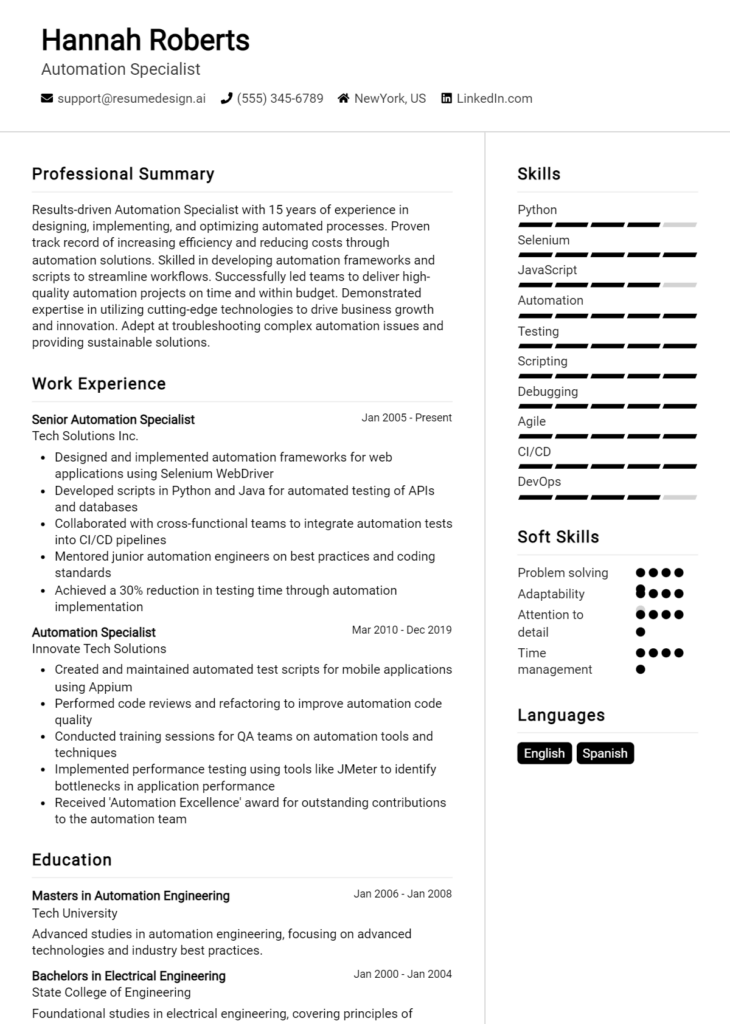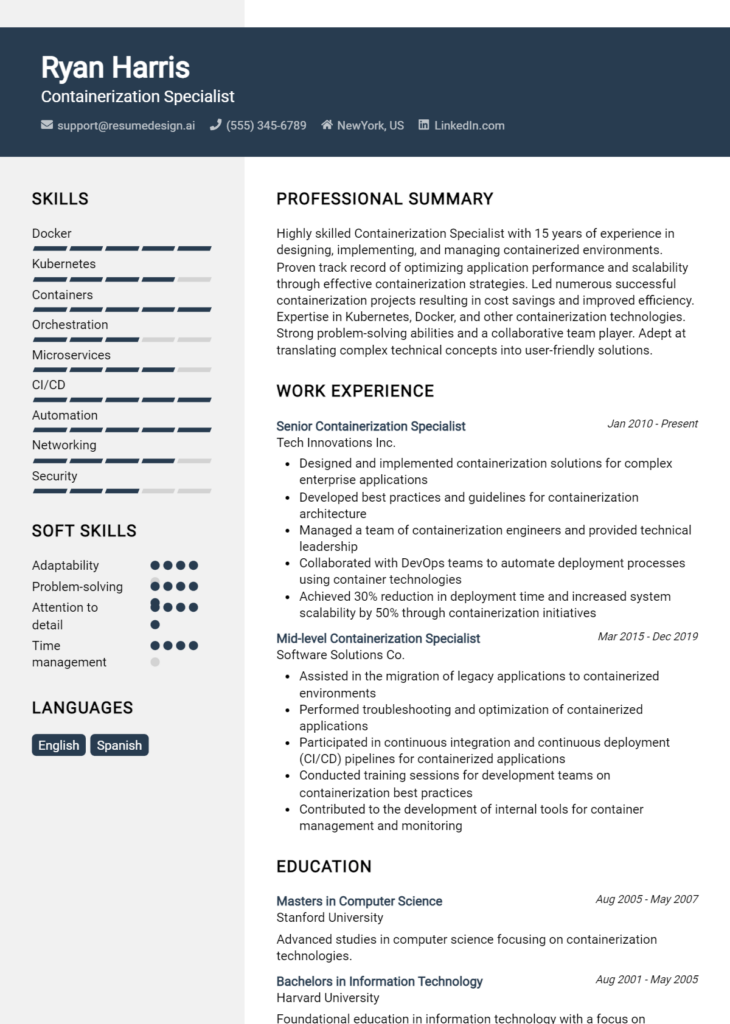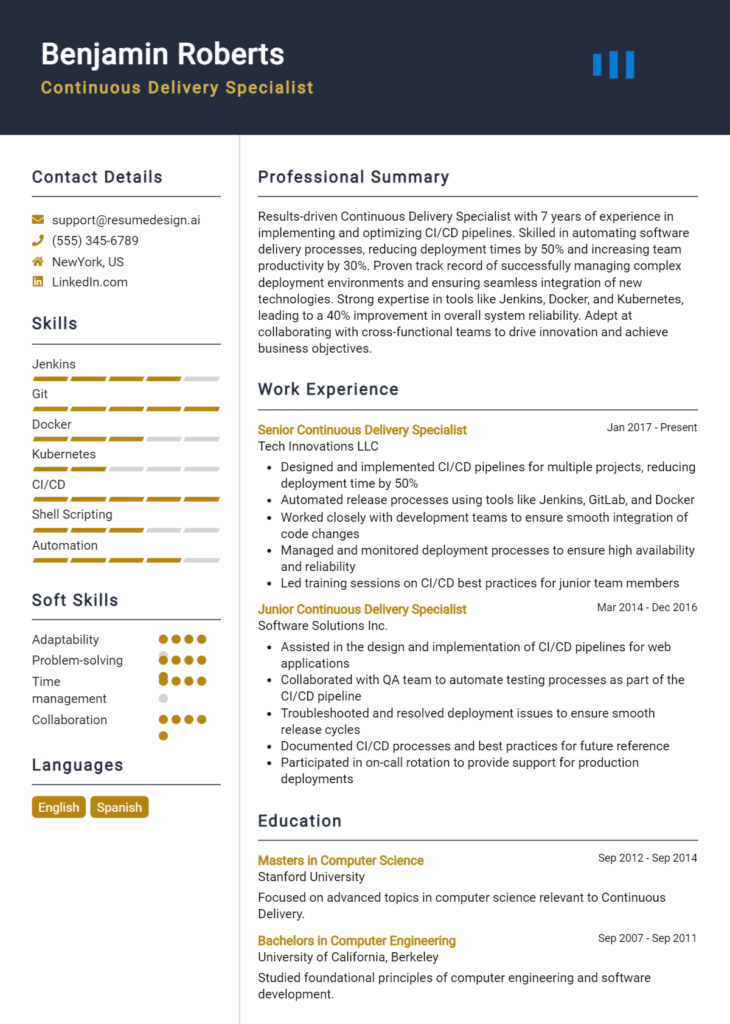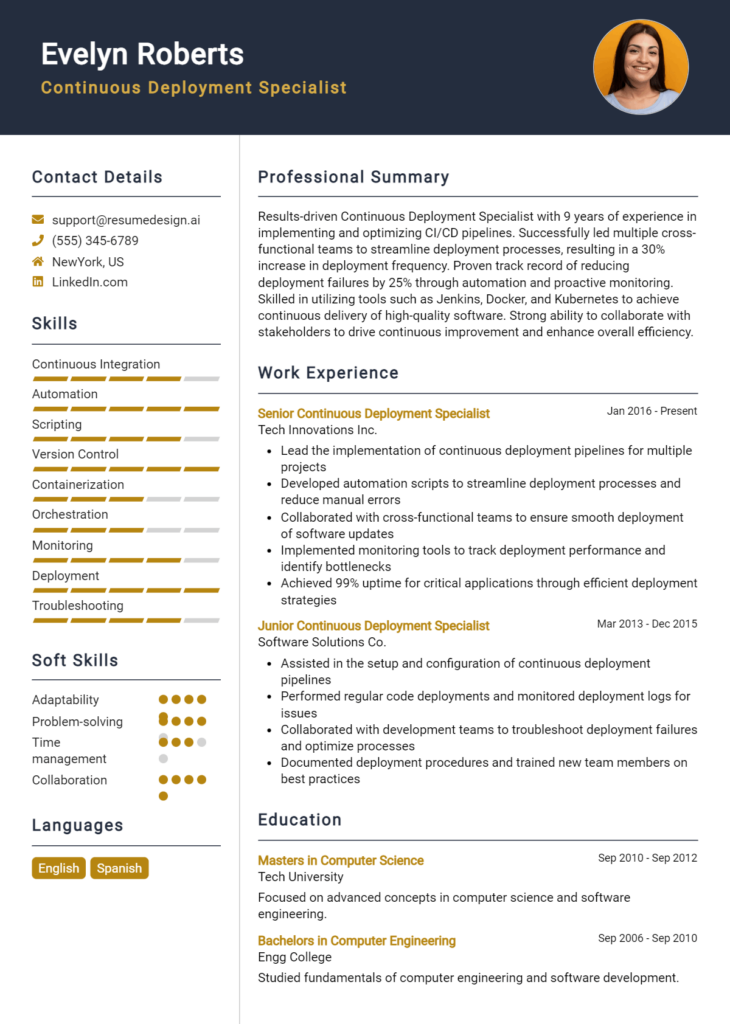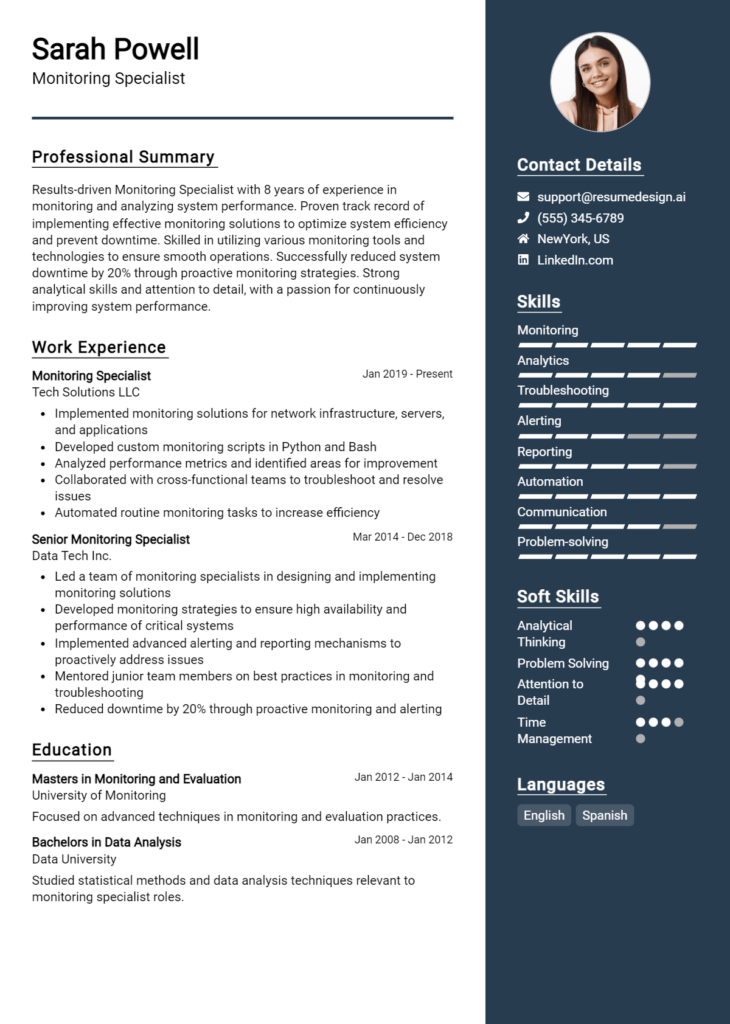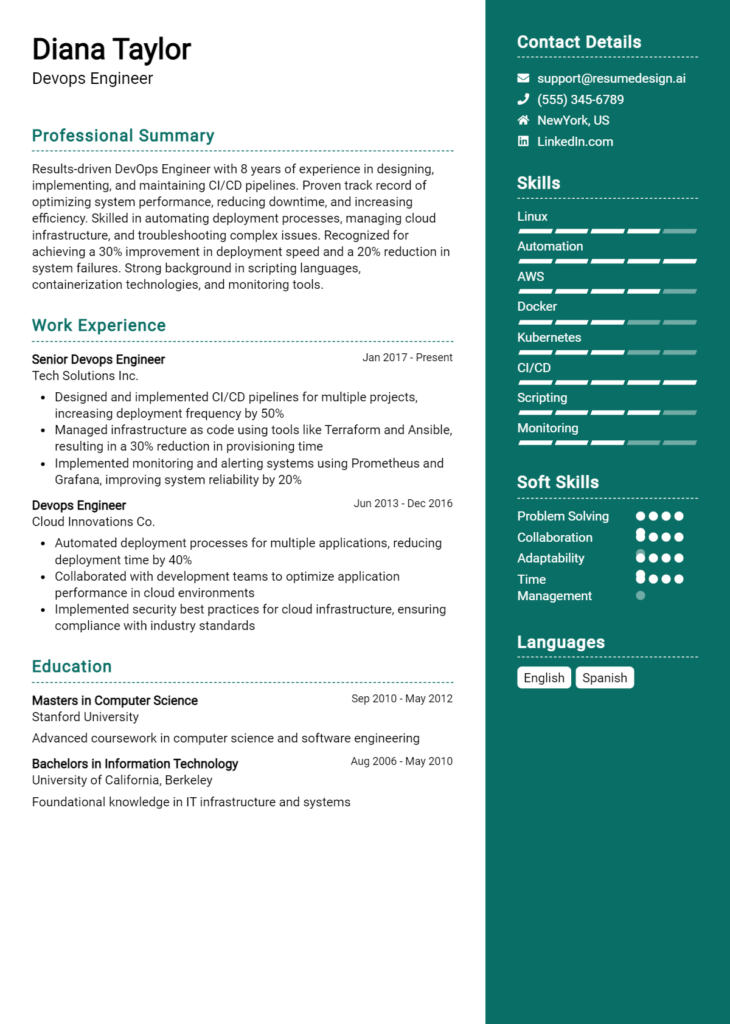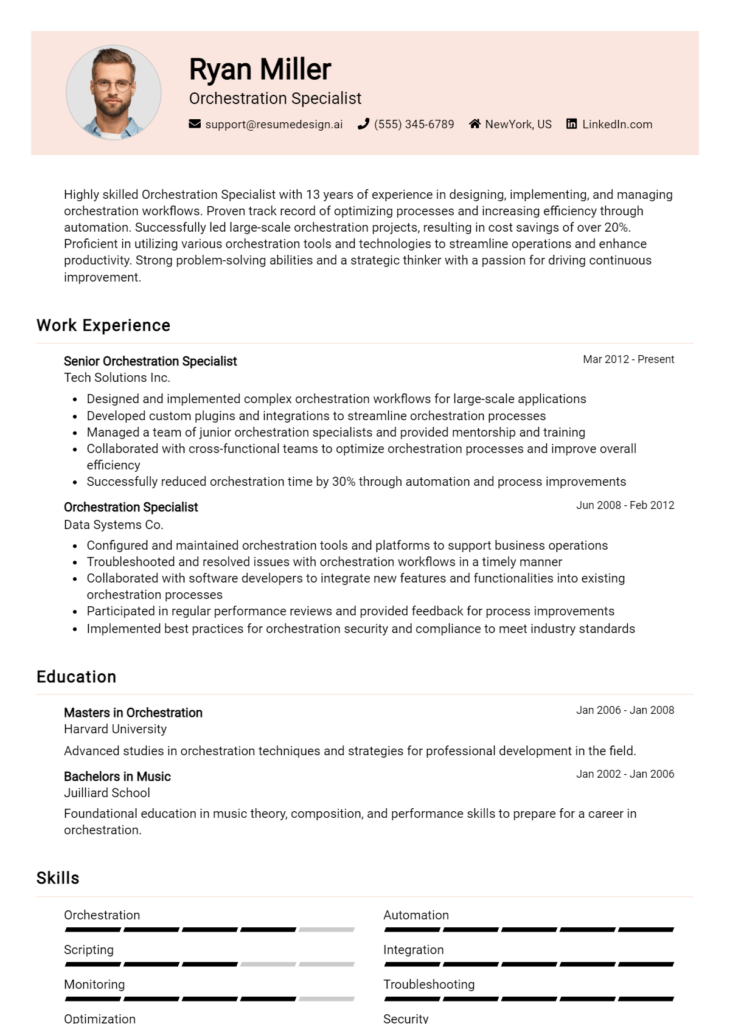DevSecOps Engineer Core Responsibilities
A DevSecOps Engineer is responsible for integrating security practices into the DevOps process, ensuring that security is prioritized from the start of the development lifecycle. This role requires strong technical skills in coding, automation, and security protocols, along with operational expertise in deploying secure applications. Problem-solving abilities are essential for addressing security vulnerabilities and fostering collaboration between development, operations, and security teams. Highlighting these skills on a well-structured resume is crucial for demonstrating value and aligning with the organization's overall goals.
Common Responsibilities Listed on DevSecOps Engineer Resume
- Implementing security controls and monitoring solutions in CI/CD pipelines.
- Conducting risk assessments and vulnerability assessments.
- Automating security testing processes to enhance code quality.
- Collaborating with development and IT teams to ensure compliance with security policies.
- Configuring and managing security tools and technologies.
- Responding to security incidents and breaches effectively.
- Developing and maintaining secure coding guidelines.
- Training teams on security best practices and awareness.
- Performing threat modeling and security architecture reviews.
- Monitoring system performance and implementing improvements.
- Documenting security processes and procedures for continuous improvement.
- Staying updated with the latest security trends and regulatory requirements.
High-Level Resume Tips for DevSecOps Engineer Professionals
In the competitive landscape of technology jobs, a well-crafted resume is crucial for DevSecOps Engineer professionals. This document serves as your first impression to potential employers, making it imperative that it effectively reflects not only your technical skills but also your achievements in the field. A resume that is tailored to highlight your unique qualifications can significantly enhance your chances of standing out to hiring managers. In this guide, we will provide practical and actionable resume tips specifically designed for DevSecOps Engineer professionals, ensuring you put your best foot forward in your job search.
Top Resume Tips for DevSecOps Engineer Professionals
- Customize your resume for each job application by closely aligning it with the job description and required skills.
- Highlight your relevant experience in DevSecOps, including specific tools, technologies, and methodologies you have worked with.
- Quantify your achievements by using metrics to demonstrate the impact of your work, such as reducing deployment time or improving security compliance.
- Showcase your understanding of both development and security processes, emphasizing any cross-functional collaboration you've engaged in.
- Include certifications relevant to DevSecOps, such as AWS Certified DevOps Engineer or Certified Kubernetes Administrator, to validate your expertise.
- Utilize clear and concise language, avoiding jargon unless it is commonly understood in the industry.
- Incorporate keywords from the job posting to help your resume pass through Applicant Tracking Systems (ATS).
- List your technical skills in a dedicated section, ensuring they are relevant to the DevSecOps domain, such as CI/CD tools, cloud platforms, and security frameworks.
- Emphasize soft skills such as problem-solving, communication, and teamwork, which are essential for a collaborative DevSecOps environment.
By implementing these tips, you can significantly increase your chances of landing a job in the DevSecOps Engineer field. A resume that effectively showcases your skills, experience, and achievements will not only capture the attention of employers but also demonstrate your readiness to contribute to their teams and projects.
Why Resume Headlines & Titles are Important for DevSecOps Engineer
In the competitive field of DevSecOps, a resume headline or title serves as a crucial first impression, immediately capturing the attention of hiring managers. A compelling headline succinctly encapsulates a candidate's key qualifications, skills, and experience, providing a snapshot of their professional identity. As hiring managers often sift through numerous resumes, a strong headline can differentiate a candidate from the rest, highlighting their suitability for the role at a glance. Therefore, it should be concise, relevant, and directly tied to the specific job being applied for, ensuring that it resonates with the employer’s needs.
Best Practices for Crafting Resume Headlines for DevSecOps Engineer
- Keep it concise: Aim for one impactful phrase that summarizes your expertise.
- Be role-specific: Tailor your headline to reflect the specific DevSecOps position you’re applying for.
- Highlight key skills: Incorporate relevant skills or technologies that align with the job description.
- Showcase experience: Mention the number of years of experience or notable achievements in the field.
- Use industry keywords: Include terms that are common in the DevSecOps landscape to enhance visibility.
- Stay professional: Avoid informal language and ensure the tone is suitable for the industry.
- Be unique: Differentiate yourself by avoiding clichés and generic phrases.
- Focus on value: Emphasize what you can bring to the organization rather than just listing qualifications.
Example Resume Headlines for DevSecOps Engineer
Strong Resume Headlines
"DevSecOps Engineer with 5+ Years in Automation and Cloud Security Solutions"
“Certified DevSecOps Professional Specializing in CI/CD and Threat Modeling”
“Innovative DevSecOps Specialist with Proven Track Record in Secure Application Development”
Weak Resume Headlines
“Engineer Looking for Job”
“DevSecOps Professional”
The strong headlines are effective because they provide specific information that highlights the candidate's unique qualifications, experience, and expertise in the DevSecOps domain. They contain keywords and phrases that resonate with hiring managers, making them more memorable. In contrast, the weak headlines fail to impress because they are vague and non-specific, lacking the details that define a candidate’s strengths. Such generic titles do not convey any sense of professionalism or relevance to the role, making it difficult for employers to recognize the potential value the candidate could bring to their organization.
Writing an Exceptional DevSecOps Engineer Resume Summary
Crafting a compelling resume summary is crucial for a DevSecOps Engineer, as it serves as the first impression that hiring managers will have of a candidate. A well-written summary quickly captures attention by effectively highlighting key skills, relevant experience, and notable accomplishments tailored to the specific job role. It should be concise and impactful, providing a snapshot that encourages further exploration of the candidate's qualifications. In a competitive job market, a strong resume summary can differentiate a candidate and make a lasting impression.
Best Practices for Writing a DevSecOps Engineer Resume Summary
- Quantify Achievements: Use numbers and metrics to demonstrate the impact of your work.
- Focus on Skills: Highlight specific technical and soft skills relevant to the DevSecOps role.
- Tailor the Summary: Customize your summary for the job description, using keywords from the posting.
- Be Concise: Keep your summary brief—ideally, 3-5 sentences that deliver maximum information.
- Use Action Verbs: Start sentences with strong action verbs to convey a sense of proactivity.
- Showcase Relevant Tools: Mention specific tools and technologies you've worked with in the DevSecOps space.
- Highlight Certifications: If applicable, include any relevant certifications that lend credibility to your skills.
- Emphasize Collaboration: Mention your ability to work cross-functionally with development, security, and operations teams.
Example DevSecOps Engineer Resume Summaries
Strong Resume Summaries
Results-driven DevSecOps Engineer with over 6 years of experience in implementing security practices in CI/CD pipelines, achieving a 30% reduction in vulnerabilities across critical applications. Proficient in AWS, Docker, and Kubernetes, with a proven ability to collaborate with cross-functional teams to enhance product security.
Dedicated DevSecOps professional with a track record of enhancing security posture by automating compliance checks, resulting in a 25% increase in deployment speed while maintaining rigorous security standards. Skilled in Terraform and Jenkins, with expertise in container orchestration.
Innovative DevSecOps Engineer with 5 years of experience in integrating security measures into agile development processes. Successfully reduced incident response time by 40% through proactive monitoring and incident management strategies, utilizing tools like Splunk and Snyk.
Weak Resume Summaries
Experienced engineer looking for opportunities in DevSecOps. I have worked on various projects and am familiar with some tools and technologies.
DevSecOps professional with knowledge of security practices. I am a team player and have learned about cloud services.
The examples above illustrate the contrast between strong and weak resume summaries. Strong summaries are specific, quantifiable, and directly relevant to the DevSecOps role, showcasing the candidate's skills and achievements. In contrast, the weak summaries lack detail, fail to quantify outcomes, and come across as generic, making it difficult for hiring managers to gauge the candidate's qualifications effectively.
Work Experience Section for DevSecOps Engineer Resume
The work experience section of a DevSecOps Engineer resume is crucial for demonstrating the candidate's technical skills, leadership abilities, and commitment to delivering high-quality products. This section not only allows candidates to showcase their hands-on experience with security integration, automation, and collaboration but also emphasizes their proficiency in managing diverse teams and projects. Quantifying achievements—such as improved deployment times, reduced vulnerabilities, or increased team efficiency—helps align the candidate's background with industry standards, making a compelling case for their suitability for the role.
Best Practices for DevSecOps Engineer Work Experience
- Highlight technical skills relevant to DevSecOps, such as CI/CD, cloud security, and infrastructure as code.
- Use quantifiable results to demonstrate impact, such as percentage improvements or time savings.
- Emphasize collaboration and teamwork by mentioning cross-functional projects and partnerships.
- Detail specific tools and technologies used in past roles, such as Jenkins, Docker, Kubernetes, or AWS.
- Showcase leadership experiences, including mentoring junior engineers or leading project teams.
- Align experiences with industry standards and best practices in security and DevOps.
- Prioritize recent and relevant experiences that reflect current trends and technologies in the field.
- Utilize action verbs to convey a proactive approach and impactful contributions.
Example Work Experiences for DevSecOps Engineer
Strong Experiences
- Led a cross-functional team to implement a CI/CD pipeline, reducing deployment time by 40% and increasing release frequency from monthly to weekly.
- Developed and integrated automated security testing into the deployment pipeline, resulting in a 30% reduction in vulnerabilities detected post-release.
- Managed a team of 5 engineers in migrating applications to a cloud-based infrastructure, achieving a 50% reduction in operational costs.
- Collaborated with compliance teams to ensure adherence to industry standards, resulting in a successful audit with zero findings.
Weak Experiences
- Worked on various projects that involved DevSecOps practices.
- Assisted in team meetings and contributed to discussions on security.
- Participated in some cloud migration activities.
- Helped to improve deployment processes.
The examples of strong experiences are considered effective because they provide specific, quantifiable outcomes that clearly illustrate the candidate's contributions and leadership abilities. Each bullet point highlights measurable achievements and technical expertise, making it easy for potential employers to recognize the value brought to previous roles. In contrast, the weak experiences lack detail and clarity, failing to demonstrate the candidate's impact or specific skills, which diminishes their overall effectiveness in a competitive job market.
Education and Certifications Section for DevSecOps Engineer Resume
The education and certifications section of a DevSecOps Engineer resume plays a crucial role in showcasing a candidate's academic background, industry-relevant certifications, and commitment to continuous learning. This section not only highlights the formal education a candidate has received but also emphasizes their proactive efforts in obtaining certifications that are pertinent to the field of DevSecOps. By including relevant coursework, specialized training, and recognized credentials, candidates can greatly enhance their credibility and demonstrate their alignment with the requirements of the role, making them a more attractive prospect to potential employers.
Best Practices for DevSecOps Engineer Education and Certifications
- Prioritize certifications from recognized organizations such as AWS, Azure, or CompTIA.
- Include relevant coursework that directly pertains to security, development, and operations.
- List any specialized training programs that enhance technical skills in tools and methodologies used in DevSecOps.
- Highlight advanced degrees such as a Master's in Cybersecurity or Software Engineering.
- Ensure that all certifications are current, reflecting ongoing professional development.
- Use clear formatting to distinguish between degrees, certifications, and training for better readability.
- Tailor the education and certifications section to match the specific requirements of the job description.
- Consider including online courses from reputable platforms that showcase relevant skills and knowledge.
Example Education and Certifications for DevSecOps Engineer
Strong Examples
- Bachelor of Science in Computer Science, XYZ University, 2018
- Certified Kubernetes Administrator (CKA), 2022
- Certificate in DevSecOps Practices, ABC Institute, 2021
- Master’s in Cybersecurity, DEF University, Expected Graduation: 2024
Weak Examples
- High School Diploma, GHI High School, 2015
- Certification in Web Development (2019) - Not directly related to DevSecOps
- Outdated CompTIA Security+ certification (expired in 2021)
- General IT Support Certificate, JKL Training Center, 2020
The strong examples are considered effective because they reflect relevant academic achievements and current, recognized certifications that align closely with the DevSecOps role, showcasing both foundational knowledge and specialized skills. In contrast, the weak examples highlight educational qualifications and certifications that are either outdated, irrelevant to the specific field of DevSecOps, or lacking in depth and industry recognition, which can detract from a candidate's overall competitiveness in the job market.
Top Skills & Keywords for DevSecOps Engineer Resume
In the ever-evolving landscape of software development and IT operations, the role of a DevSecOps Engineer has become increasingly crucial. This position merges development, security, and operations to ensure seamless collaboration and robust security throughout the software lifecycle. A well-crafted resume is essential for showcasing the unique blend of technical and interpersonal skills required for this role. Highlighting the right skills not only helps in passing through Applicant Tracking Systems (ATS) but also catches the attention of hiring managers looking for candidates who can effectively integrate security practices into DevOps workflows. Therefore, understanding and presenting both hard and soft skills on your resume is vital for standing out in this competitive field.
Top Hard & Soft Skills for DevSecOps Engineer
Soft Skills
- Effective Communication
- Team Collaboration
- Problem Solving
- Adaptability
- Critical Thinking
- Attention to Detail
- Time Management
- Conflict Resolution
- Empathy
- Leadership
Hard Skills
- CI/CD Pipeline Management
- Infrastructure as Code (IaC)
- Cloud Security (AWS, Azure, GCP)
- Containerization (Docker, Kubernetes)
- Security Automation
- Vulnerability Assessment Tools
- Configuration Management (Ansible, Chef, Puppet)
- Scripting Languages (Python, Bash)
- Network Security
- Monitoring and Logging Solutions (ELK Stack, Prometheus)
For a deeper understanding of how to effectively display these skills and present your work experience on your resume, consider refining your narrative to reflect your unique qualifications in the DevSecOps domain.
Stand Out with a Winning DevSecOps Engineer Cover Letter
Dear Hiring Manager,
I am writing to express my interest in the DevSecOps Engineer position at [Company Name], as advertised on [Job Board/Company Website]. With a strong background in software development, security practices, and operations, I am excited about the opportunity to contribute to your team by enhancing the security and efficiency of your development processes. My hands-on experience in implementing secure coding practices and automating security checks aligns well with the requirements of this role, making me a strong candidate.
In my previous role at [Previous Company Name], I successfully integrated security into the CI/CD pipeline, allowing for real-time vulnerability assessments and remediation. By collaborating closely with development teams, I fostered a culture of security awareness that resulted in a 30% reduction in security incidents within the first year. I also played a pivotal role in implementing Infrastructure as Code (IaC) using tools like Terraform and AWS CloudFormation, ensuring that security was a foundational element of our cloud infrastructure. My technical proficiency in tools such as Docker, Kubernetes, and Jenkins, combined with my passion for continuous improvement, has equipped me to effectively bridge the gap between development and operations.
I am particularly drawn to [Company Name] because of its commitment to innovation and security in the software development lifecycle. I am eager to bring my expertise in threat modeling, risk assessment, and secure coding practices to enhance your team's capabilities. Furthermore, my dedication to staying current with industry trends and best practices ensures that I can contribute to the ongoing evolution of your DevSecOps strategy.
Thank you for considering my application. I am excited about the possibility of joining [Company Name] and contributing to the growth and security of your innovative projects. I look forward to discussing how my skills and experiences align with the goals of your team.
Sincerely,
[Your Name]
[Your LinkedIn Profile]
[Your Contact Information]
Common Mistakes to Avoid in a DevSecOps Engineer Resume
When crafting a resume for a DevSecOps Engineer position, it's crucial to present a clear, concise, and relevant overview of your skills and experiences. Many candidates inadvertently make common mistakes that can hinder their chances of landing an interview. Being aware of these pitfalls can help you create a more effective resume that stands out to hiring managers. Below are some of the most frequent mistakes to avoid:
Vague Job Descriptions: Failing to provide specific details about your previous roles can leave employers unsure of your actual contributions and skills. Instead, use quantifiable achievements to demonstrate your impact.
Ignoring Relevant Skills: A common mistake is not tailoring your skills section to match the specific requirements of the job. Ensure you highlight skills that are directly relevant to DevSecOps, such as CI/CD tools, security practices, and cloud platforms.
Overloading with Technical Jargon: While technical knowledge is essential, overloading your resume with jargon can make it hard to read. Aim for a balance that showcases your expertise without alienating non-technical reviewers.
Neglecting Soft Skills: Focusing solely on technical skills can be a mistake, as soft skills like teamwork, communication, and problem-solving are equally valuable in a DevSecOps role. Be sure to include examples that illustrate these competencies.
Inconsistent Formatting: A cluttered or inconsistent layout can detract from the overall professionalism of your resume. Stick to a clean, uniform format that enhances readability and ensures your key points stand out.
Listing Responsibilities Instead of Achievements: Simply listing job responsibilities can come across as passive. Instead, focus on your achievements and the value you brought to your previous teams or projects.
Omitting Certifications and Continuous Learning: In a rapidly evolving field like DevSecOps, certifications and ongoing education are vital. Failing to mention relevant certifications or courses can leave a gap in your qualifications.
Using a One-Size-Fits-All Approach: Sending out the same resume for every job application is a missed opportunity. Tailor your resume for each position by incorporating keywords and experiences that align with the job description.
Conclusion
As we wrap up our discussion on the role of a DevSecOps Engineer, it's essential to highlight the critical responsibilities and skills that define this position. A DevSecOps Engineer integrates security practices into the DevOps process, ensuring that security is a shared responsibility throughout the development lifecycle. Key competencies include proficiency in cloud platforms, automation tools, security frameworks, and a solid understanding of CI/CD pipelines. Moreover, effective collaboration and communication skills are vital, as these engineers work closely with development, operations, and security teams.
In light of this information, it's crucial to ensure that your resume effectively showcases your qualifications and experiences relevant to the DevSecOps Engineer role. Take the time to review your resume and make necessary updates to reflect your skills and accomplishments accurately. To assist you in this process, consider utilizing the following resources:
- Explore resume templates to find a design that complements your professional style.
- Use the resume builder to create a polished and tailored resume that highlights your strengths.
- Check out resume examples for inspiration and to understand how to present your experience effectively.
- Don’t forget about cover letter templates to help you craft a compelling introduction to potential employers.
Now is the time to take action and refine your resume to stand out in the competitive job market for DevSecOps Engineers. Your next opportunity is just around the corner!

